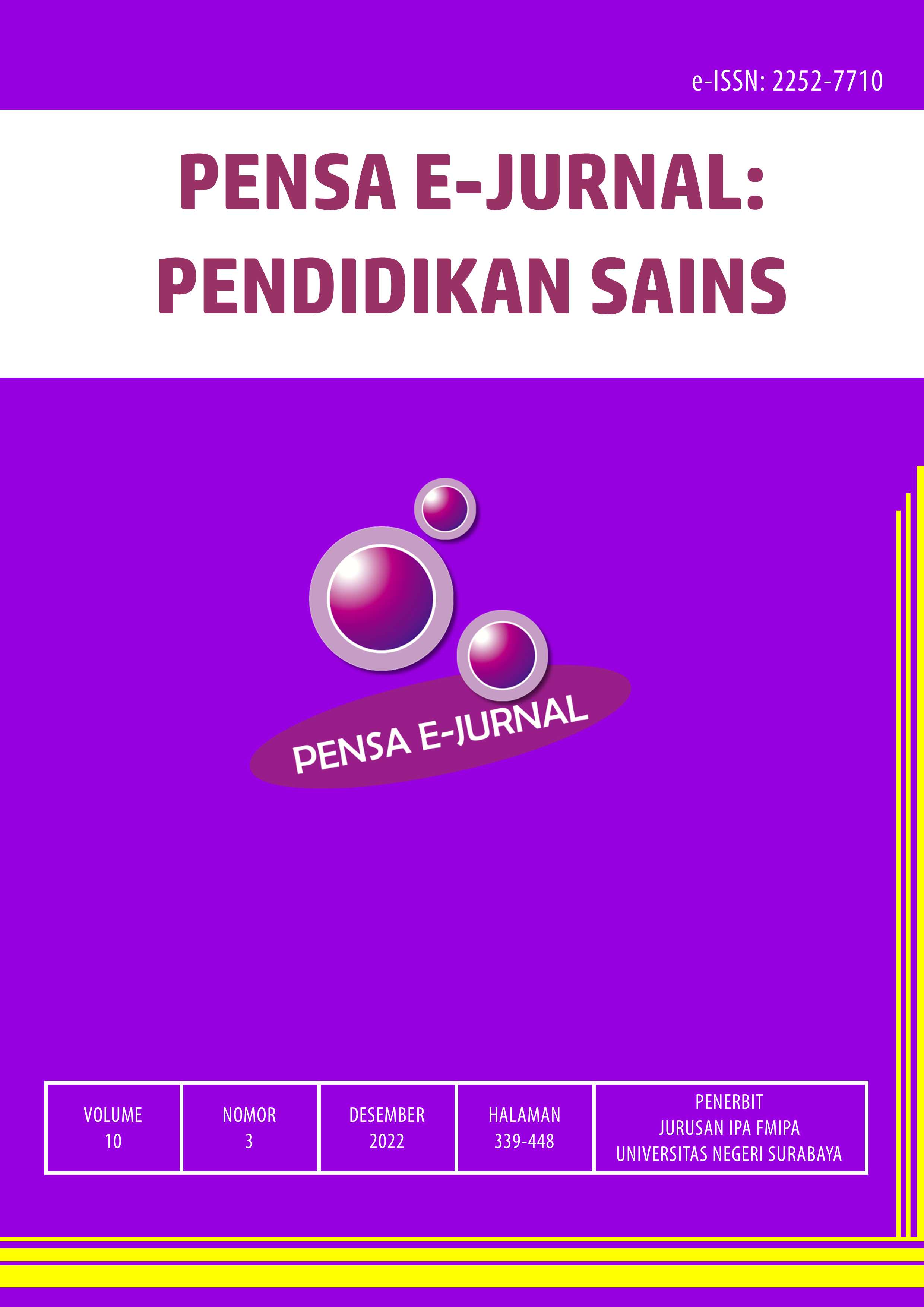PENERAPAN MODEL PROBLEM BASED LEARNING UNTUK MENINGKATKAN KEMAMPUAN LITERASI SAINS SISWA SMP PADA PEMBELAJARAN IPA
DOI:
https://doi.org/10.26740/pensa.v10i3.45386Keywords:
problem based learning, improvement, scientific literacyDownloads
Download data is not yet available.
Downloads
Published
2022-12-31
How to Cite
Nuzula, N. F., & Sudibyo, E. (2022). PENERAPAN MODEL PROBLEM BASED LEARNING UNTUK MENINGKATKAN KEMAMPUAN LITERASI SAINS SISWA SMP PADA PEMBELAJARAN IPA. PENSA E-JURNAL: PENDIDIKAN SAINS, 10(3), 360–366. https://doi.org/10.26740/pensa.v10i3.45386
Issue
Section
Articles
 Abstract views: 1314
,
Abstract views: 1314
, PDF Downloads: 2338
PDF Downloads: 2338

















